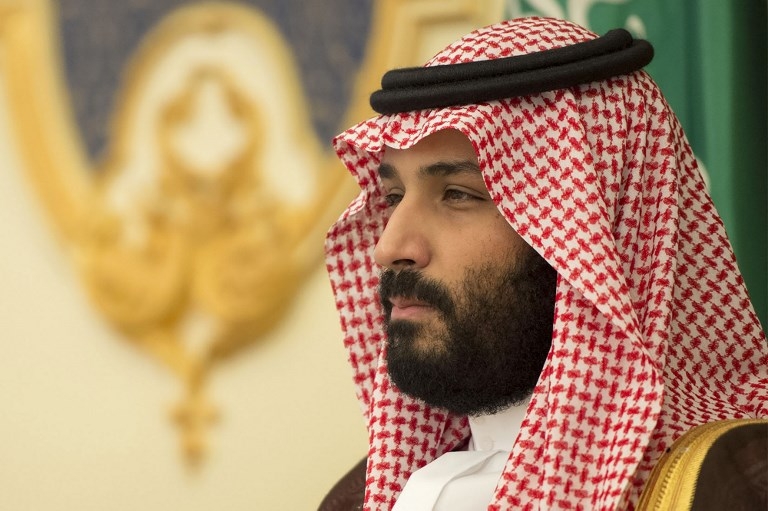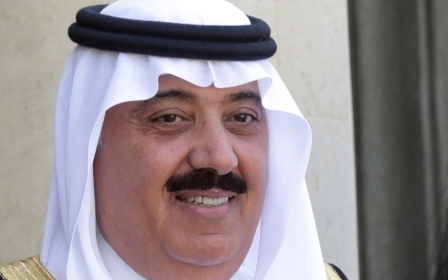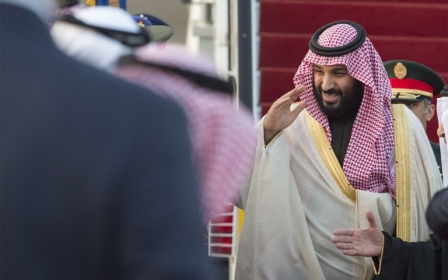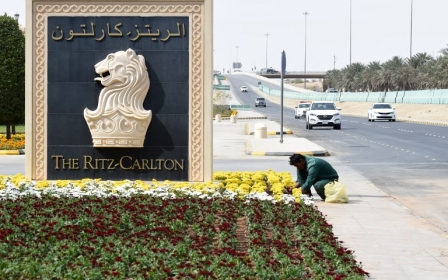Saudi Arabia must investigate torture claims: HRW

Saudi Arabia should immediately investigate claims that authorities “physically mistreated or coerced prominent people” during the kingdom’s so-called anti-corruption purge, according to Human Rights Watch.
In November 2017, MEE reported that at least 17 of those detained had injuries requiring hospital treatment, including Prince Miteb bin Abdullah, the son of the late King Abdullah.
“Some, but not all, of the top figures arrested were singled out for the most brutal treatment, suffering wounds to the body sustained by classic torture methods. There are no wounds to their faces, so they will show no physical signs of their ordeal when they next appear in public,” wrote David Hearst.
And this week, the New York Times also reported on the hospitalisation of at least 17 of those detained, including one, Maj Gen Ali al-Qahtani, an officer in the Saudi National Guard, who died while still in custody. His neck, the report said, was twisted unnaturally as though it had been broken, and his body was covered in bruises consistent with abuse.
“The alleged mistreatment at the Ritz Carlton is a serious blow to Mohammad bin Salman’s claims to be a modernising reformist,” said Sarah Leah Whitson, HRW’s Middle East director.
“While MBS jaunts across Western capitals to gin up foreign investments, investors should think twice about the Saudis’ cavalier dismissal of the rule of law and fundamental rights.”
As a party to the Convention against Torture, HRW also said on Tuesday that Saudi Arabia must undertake “effective legislative, administrative, judicial or other measures to prevent acts of torture.”
In early March, Mohammad Bin Salman visited London, where he met with Prime Minister Theresa May and Queen Elizabeth. It was his first official visit to the UK.
His meeting with May saw the two leaders agree to a “landmark ambition” for about £65bn ($90bn) in investment.
MBS is due to visit the US next week.
According to the last official statement, 56 Saudis remain in detention, with more than 300 released. More than $106bn was seized from 381 Saudi citizens, according to a 30 January statement from Saudi Arabia’s attorney general Sheikh Saud al-Mojeb, in what was framed as an anti-corruption drive.
Arbitary detention
Critics have seen the purge as more of a political campaign to silence critics and neutralise challengers to MBS’s rising power.
HRW also highlighted that international human rights law also protects the “right not to be arbitrarily detained”.
“Any charges authorities bring must resemble recognisable crimes. At a minimum, those detained should be informed of the specific grounds for their arrest, be able to fairly contest their detention before an independent and impartial judge, have access to a lawyer and family members, and have their case periodically reviewed."
Holding detainees at unofficial detention centres also violates international standards, HRW added – the princes and tycoons were held at Riyadh’s Ritz Carlton hotel.
“It is great that the Saudi government wants to combat corruption, but its alleged tactics look more like extortion, and make a mockery of the rule of law,” Whitson said.
“As the new government tries to sell its reformist credentials to the public, governments and investors, they should take a hard, sceptical look at what actually happened in the Riyadh Ritz Carlton and its implications.”
New MEE newsletter: Jerusalem Dispatch
Sign up to get the latest insights and analysis on Israel-Palestine, alongside Turkey Unpacked and other MEE newsletters
Middle East Eye delivers independent and unrivalled coverage and analysis of the Middle East, North Africa and beyond. To learn more about republishing this content and the associated fees, please fill out this form. More about MEE can be found here.




